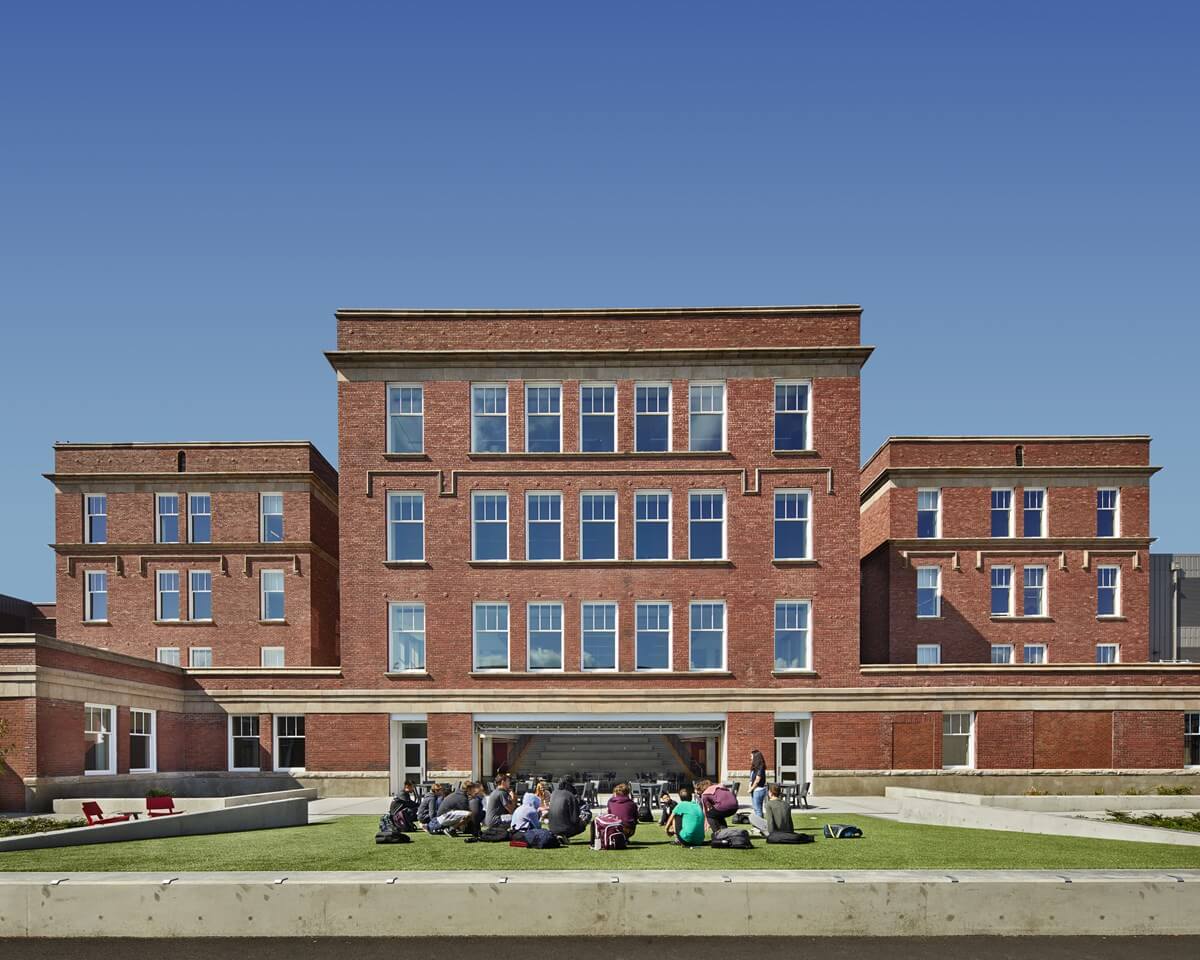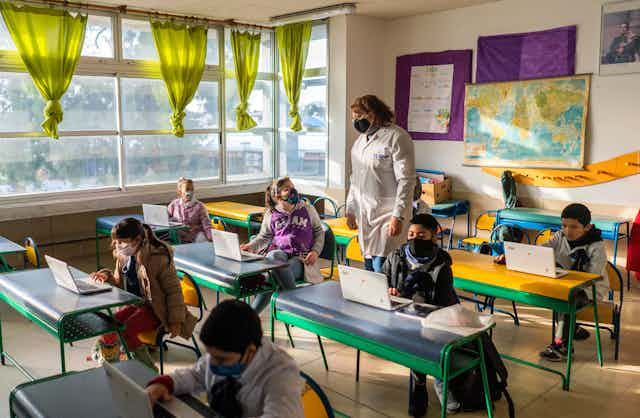Exactly How You Can Help Save Temecula Schools for Future Generations
Exactly How You Can Help Save Temecula Schools for Future Generations
Blog Article
Exactly How Schools Play an Important Role in Shaping Future Leaders and Innovators
By integrating project-based knowing and interdisciplinary research studies, instructional establishments test students to assess and manufacture intricate information. Teachers offer as advisors, guiding students and supporting their possibility, while extracurricular activities even more create leadership abilities and resilience.
Promoting Vital Believing
In today's rapidly progressing world, promoting vital assuming within universities has actually become paramount. As society grapples with significantly intricate global challenges, the capability to evaluate, assess, and manufacture information is necessary. Colleges play a critical role in creating these abilities, preparing students to navigate and address diverse problems with informed, reasoned choices.
To cultivate vital thinking, teachers utilize various pedagogical approaches that motivate active learning and intellectual involvement. Class conversations, problem-based understanding, and Socratic examining are crucial in promoting reflective and logical thought procedures. By testing trainees to question presumptions and think about several point of views, these techniques ensure a deeper understanding of topic beyond rote memorization.
Furthermore, incorporating important believing across the educational program enhances its significance and applicability in diverse contexts. Topics such as maths, scientific research, history, and literature each offer one-of-a-kind opportunities to create pupils' essential faculties. As an example, analyzing historical events needs recognizing and evaluating resources context, while scientific inquiry demands strenuous theory testing and evidence-based thinking.
Eventually, instilling essential thinking skills in students outfits them with the cognitive tools essential for long-lasting discovering and flexibility. It is through this foundational skills that future leaders will be able to innovate, address problems, and add meaningfully to society.
Motivating Creativity
Accepting imagination within educational frameworks galvanizes trainees to believe past conventional borders and check out cutting-edge options. By integrating creative ventures and creative thinking exercises into the curriculum, institutions cultivate an environment where creativity and imaginative thought are valued. This strategy not just enhances the educational experience but likewise outfits students with the capacity to tackle real-world difficulties in novel methods.
School can cultivate creativity with diverse means such as project-based discovering, interdisciplinary researches, and the unification of arts and modern technology. Project-based learning, for instance, encourages trainees to use their expertise in practical, frequently collaborative, projects that demand creative problem-solving abilities. Interdisciplinary studies allow trainees to draw links in between various subjects, thereby expanding their perspectives and enhancing their innovative abilities.
In addition, giving pupils with possibilities to involve with arising modern technologies, such as coding and electronic layout, further nurtures their imaginative capacity. These tasks motivate trainees to experiment, fail, and iterate, which are critical elements of the imaginative process (Save Temecula Schools). By keeping a helpful environment where testing is motivated, schools can ensure that students establish the confidence to pursue cutting-edge ideas
In essence, nurturing creativity in academic settings is important for forming future leaders and pioneers efficient in attending to intricate global issues with ingenuity.
Promoting Collaboration

Implementing group-based knowing components and participating tasks allows students to experience the characteristics of teamwork firsthand. This not only prepares them for the collective nature of modern offices however also nurtures management top qualities as they usually have to take on duties such as task supervisors or team planners. Furthermore, cooperation in the classroom can damage down social obstacles and advertise inclusivity, making certain that each student really feels valued and listened to.
Moreover, incorporating modern technology can even more support joint efforts. Tools like shared digital work areas and interactive platforms make it possible for students to function with each other successfully, also outside the class. As students create these joint abilities, they are much better geared up to deal with complex obstacles and introduce, laying the groundwork for their future functions as leaders and pioneers.
Duty of Educators as Mentors

Mentorship includes personalized attention, where instructors determine and nurture specific staminas and address weaknesses. Save Temecula Schools. Through one-on-one communications, educators can tailor their advice and assistance to satisfy each student's special demands, fostering a sense of self-confidence and resilience. This individualized technique grows a growth way of thinking, encouraging students to watch failures as possibilities for discovering and development
Moreover, educators act hop over to here as role models, demonstrating the values of stability, compassion, and willpower. Their perspectives and activities give a blueprint for pupils to mimic, instilling a sense of moral obligation and social awareness. By creating a inclusive and encouraging class atmosphere, educators allow students to develop social abilities that are important for reliable management.
Basically, the mentorship given by educators lays a fundamental framework for the growth of future leaders, outfitting them with the knowledge, abilities, and worths required to master an ever-evolving globe.
Effect of After-school Activities
When integrated effectively into the educational framework, extracurricular tasks substantially enhance pupil advancement and leadership possibility. These tasks give pupils with chances to explore interests beyond the traditional educational program, cultivating a well-rounded skill collection.
Students involved in dramatization, debate, or music clubs find out to assume critically and approach problems from diverse viewpoints. By teaming up with peers from different backgrounds, trainees additionally develop empathy and interaction skills, essential attributes for future leaders.
Extracurricular activities likewise play an essential role in scholastic performance. Research indicates that pupils involved in such programs have a tendency to have higher qualities and better presence documents. These activities give a healthy electrical outlet for anxiety, adding to total well-being. Therefore, institutions that prioritize a well balanced strategy to education and learning, incorporating robust extracurricular programs, are visit this site most likely to create leaders and pioneers equipped to meet the obstacles of the future.

Verdict
In conclusion, colleges considerably form future leaders and trendsetters by nurturing vital thinking, imagination, and cooperation among students. By cultivating an encouraging setting that values private staminas and teamwork, colleges furnish students with the required skills to navigate future difficulties and drive advancement.
As pupils develop these joint skills, they are much better furnished to take on complicated obstacles and innovate, laying the groundwork for their future roles as leaders and trendsetters.
By fostering crucial reasoning and analytical skills, teachers help pupils navigate complex challenges, preparing them for management functions in various fields.
By working together with peers from different backgrounds, trainees additionally develop compassion and communication abilities, crucial attributes for future leaders.
In final thought, schools considerably form future leaders and pioneers by supporting critical reasoning, imagination, and cooperation amongst pupils. By cultivating an encouraging environment that values individual toughness and synergy, schools gear up pupils with the needed abilities to browse future obstacles and drive development.
Report this page